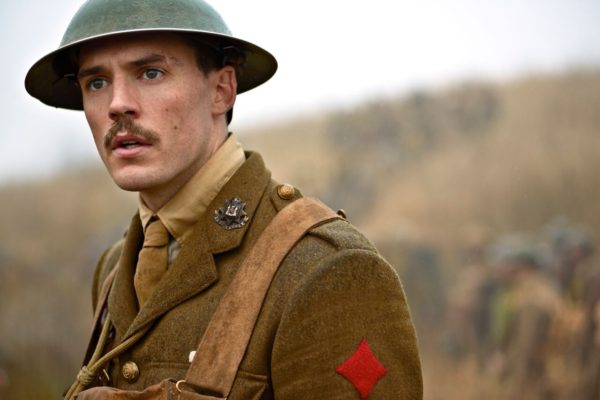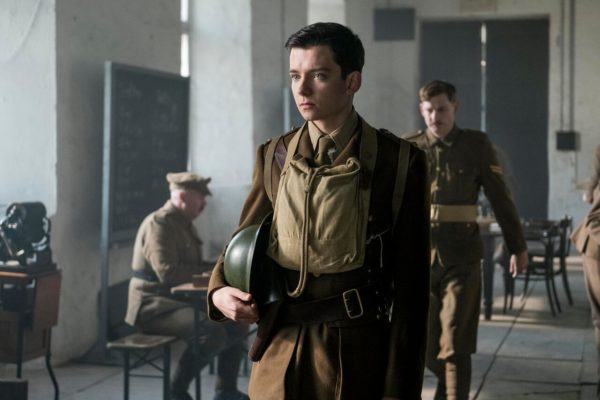The centenary of World War I, supposedly the war to end all wars, will be commemorated in November. It will be a somber occasion, given the ghastly death toll that this conflict exacted.
Journey’s End, a British feature film which unfolds over a short period of time in March 1918, brings these thoughts to mind. Scheduled to open in Canada on March 30, it is set in northern France as British and German troops positioned in trenches face each other across a scarred and pitted battlefield.
The film, ably directed by Saul Dibb, gets under way as a young and inexperienced officer, Raleigh (Asa Butterfield), asks a general whether he can be assigned to Company C, commanded by an old school acquaintance. The general, Raleigh’s uncle, authorizes his request, and Raleigh reports for duty in a dimly-lit bunker beneath a trench.

Raleigh’s chum turns out to be Stanhope (Sam Claflin), a gruff, frazzled captain who suffers from a dependence on hard liquor. Raleigh has far better rapport with Osborne (Paul Bettany), a lieutenant whose demeanor borders on the angelic.
Raleigh knows he’s entered a danger zone. As the officers partake of a meal, soldiers manning the trenches dodge German bullets. In this scene, Dibb creates a mood of menace and uncertainty. Officers and soldiers alike know that the Germans, just 200 meters away from their lines, are close to launching what might be a crushing offensive.
The waiting game they’re playing weighs heavily on them. “They’ve sent us here to die,” says an officer whose patience has run out. In the meantime, the soldiers abide by their routines, hoping they can survive this hell on earth.

The movie goes into hard drive after an order is issued for a raid to be conducted against German fortifications. The object of the exercise, to be commanded by Osborne and Raleigh, is to abduct an enemy soldier and milk him for information about German intentions. The 10 soldiers chosen for the mission are gripped by fear. The film conveys their mood in short brushstrokes.
As the Brits enter no-man’s land, British smoke bombs explode in the distance to conceal their movements. But the Germans, having spotted them, open fire with machine-guns. Nevertheless, the Brits achieve their objective within a few minutes and return to base, minus the soldiers who have fallen in battle. Responding to the kidnapping, the Germans unleash a heavy bombardment that causes panic and casualties.
This is a grinding war of attrition that saps the energies of the combatants. Journey’s End conveys that theme piercingly.